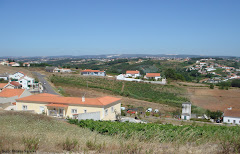9 de outubro de 2013
International research conference: planning / conflict - cities and citizenship in times of crisis
Quando:
October 9-11, 2013
Onde:
Lisbon
The second international research conference of the AESOP Planning/Conflict thematic group is hosted by the Instituto de Ciências Sociais - Universidade de Lisboa (ICS-UL) in partnership with the Centro de Investigação e Estudos de Sociologia – Instituto Universitário de Lisboa (CIES-IUL) and sponsored by the Association of European Schools of Planning (AESOP).
This conference aims at bringing together different perspectives on conflicts around urban planned developments, with a focus on the role planning practices may play both in defining/framing and in possibly solving/reframing conflicts. This event builds on the experience of the conference "planning/conflict – critical perspectives on contentious urban developments" held at TU Berlin in October 2011.
Conflicts around planning issues represent an important element in urban politics. Their relevance as a vehicle of political mobilization is growing alongside their impact in terms of public opinion.
Issues of representation, democracy and social cohesion and the potential conflict between competition-oriented and cohesion-oriented policies at the urban and regional level are all the more relevant today, when Europe is undergoing a severe economic crisis.
The conference will try to explore these issues, by developing a reflection on planning conflicts. In particular, it will focus on crucial aspects of contemporary urban politics: the multi-scalarity of urban phenomena and policies; their relational, cultural and discursive nature; the spatial dimension of social mobilization; the growing pressure for deliberative democracy exercises; the limits to existent institutional structures and practices for decision-making, representation and conflict resolution.
The conference aims at rethinking planning/conflicts through a multidisciplinary perspective; above all, it raises the question about the role of planning theory and practices in acting upon conflict themselves, and in respect to broader issues of democratic legitimacy.
* the changing features of urban development policies and their impacts on local societies and communities;
* the changing nature of urban planning practices and their influence on public opinion formation, including forms of protest and social mobilization in opposition to planned developments;
* the effectiveness and legitimacy of established planning practices in responding to protest and social mobilization and in dealing with possibly resulting conflicts;
* the transformative potential that may be entailed in reflexively addressing protest and social mobilization and in dealing with conflicts;
* the potential integrative and innovative contribution of political agonism and social conflict to the democratization of urban policy and planning.
Site da Conferência:
http://www.planningconflict.ics.ul.pt
Subscrever:
Enviar feedback (Atom)














Sem comentários:
Enviar um comentário